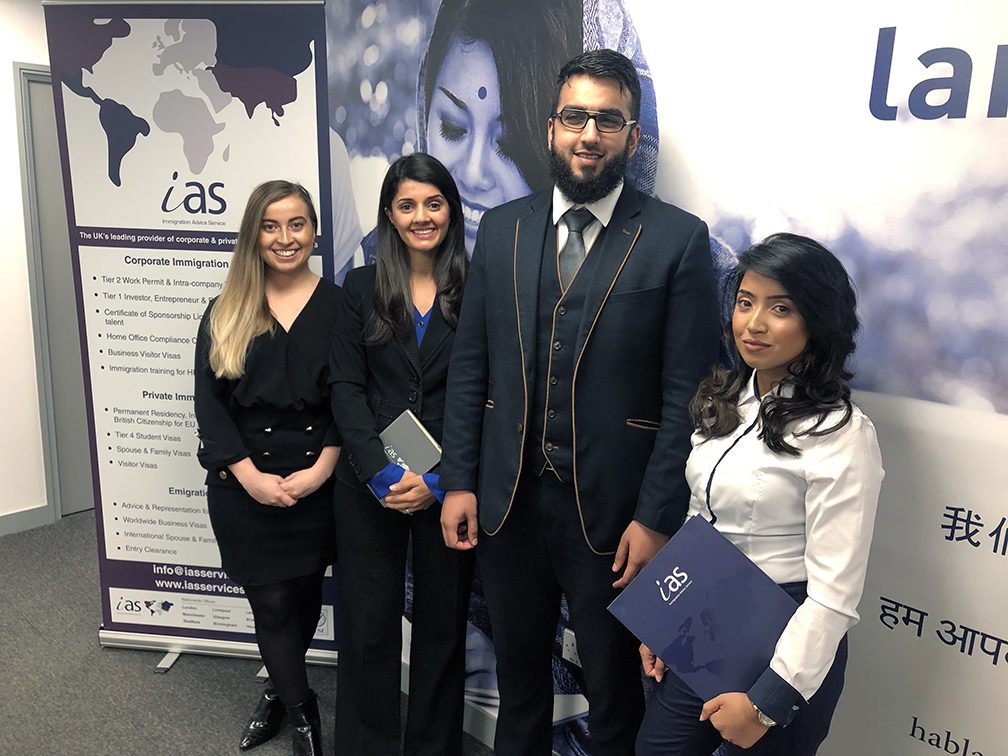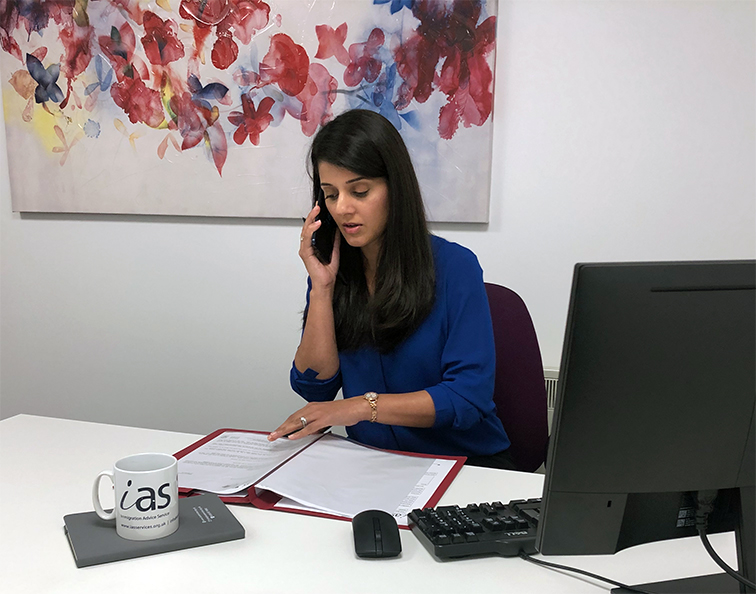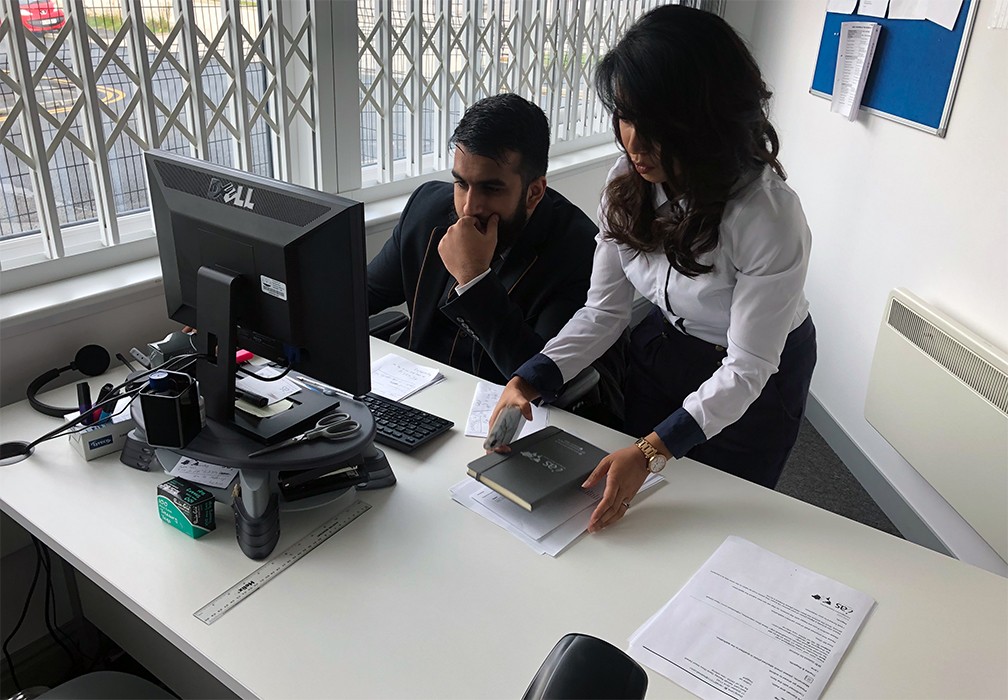Spain Visa from the Philippines
When you are planning to visit Spain from the Philippines you will need to decide which available visa option is right for you.
Depending on your circumstances, it can feel tricky to know which visa category is the best option for your travel plans. Seeking the support of a Spain-Philippines visa expert can help you feel secure in your decision. Our team of immigration lawyers at Total Law has years of experience navigating all aspects of the visa application process. You can reach us online or call today at +44 (0) 333 305 9375 to receive immediate advice.
Do Filipinos need a visa to Spain?
Filipino travellers will need to obtain the appropriate visa permission before visiting Spain. Usually, the kind of visa you may need to apply for will be decided by your reasons for travelling, which may be for tourism, education or work, or to reunite with family that might be living in Spain.

Page Contents
- Do Filipinos need a visa to Spain?
- Types of Spanish Visas Available to Filipino Citizens
- Work Visas
- The Spanish Employee Visa
- The Spanish Self Employment Visa
- Student Visa
- Digital Nomad Visa
- Non-Lucrative Visa
- Family Visa
- Golden Visa
- What Is the Application Process for a Spain Visa from the Philippines?
- Documents Requirements for Spain Visa
- After You Have Applied
- How much is the Spain visa fees?
- How Can Total Law Help?
- Frequently Asked Questions
Types of Spanish Visas Available to Filipino Citizens
Depending on your intentions, this may be a short-stay Schengen visa or a long-stay national visa, should you be planning to visit for more than 90 days. You may also need to travel through Spain on a temporary transit visa if you are travelling elsewhere but have a connecting flight or other transport in the country.
What Is the Short-Stay Schengen Visa?
The short-stay Schengen visa is the general visa required for any non-exempt individuals who wish to travel to one of the Schengen countries for a limited duration. The time restriction means that you will only be able to benefit from this visa for short term visits of less than 90 days total in a 180-day period.
A benefit of this visa is that it allows for easier travel among the Schengen regions, but you will need to apply for a multi-entry Schengen visa if this is your intention. Additionally, if you are applying for the Spanish Schengen visa, you should be clear that this will need to be your first destination and point of entry when you arrive.
The Schengen visa can be divided into the following categories:
- Visitor visas (this includes the general tourist visa)
- Education visas (for short-term education or training purposes)
- Business visa
- Medical Treatment visa
- EEA/EU Dependent visa
- Diplomatic Passport Holder visa
- Transit visa
- Missing Residence Permit visa
You will need to fill out the general Schengen visa application form and specify your country of entry.
What Is the Spanish Long-Stay National Visa?
The long-stay national visa is the visa permission that you will need to apply for if you wish to stay in Spain for a duration that exceeds the maximum time of the Schengen visa.
It may also offer you the possibility to seek employment or otherwise carry out paid activities in Spain, but this will depend on the visa and may require additional permissions such as a work permit.
When applying for a long term visas, you will have to choose one of the following:
- Work visa
- Student visa
- Digital Nomad visa
- Non-lucrative visa
- Family visa
- Golden visa
It can be difficult to decide which visa is the best fit for your circumstances, especially when more than one might apply. If you or a loved one are struggling with this process, it can help to contact an immigration specialist.
Our immigration lawyers at Total Law are experienced in all aspects of the Spanish visa requirements and will be happy to help you navigate the application process. You can call us today at +44 (0) 333 305 9375 to receive immediate advice.

Work Visas
If you want to work in Spain or from Spain, you may be able to benefit from one of the work-based visa options. A distinction will be made between your type of work – you may be an employee for a fixed company or you may work independently as a freelancer or entrepreneur.
You should pick the visa option that best relates to you.
The Spanish Employee Visa
The employment visa is an option for individuals who want to come to Spain as a fixed employee for a Spanish company. To qualify, you will need to have an invitation letter with a viable offer of employment from a reputable business in Spain and show that this position meets the general labour requirements.
It should correspond to minimum wage requirements and have adhered to the national employment situation guidelines in hiring you instead of a local worker.
Additionally, you will need to show that the workload is reasonable for the proposed wage and that you have the skills or qualifications to carry out what is asked of you in this position.
The Spanish Self Employment Visa
If you are an independent worker or contractor, or if you are an entrepreneur with plans to start a business in Spain, this visa might be the better option for you.
When applying, you will be expected to show a reasonable action plan, meaning that your business idea or planned work structure is likely to be possible and leave you with adequate means to support yourself.
If you are opening a business, you will need to further show that you have the means to support this business and ENISA must have signed off on your plan.
Student Visa
Individuals may seek educational opportunities in Spain with a student visa. This permission may be granted to students of all levels who have enrolled with an accredited educational institution. Alternatively, it might also be the best visa for individuals who come to Spain to receive training or participate in an internship that cannot otherwise be classed as a work visa.
You will need to show that you have enough money to afford your education (if applicable), general lifestyle, and accommodation for the entire planned duration of your stay. Additionally, you must provide proof that you have no past criminal convictions.
If you are applying for this visa as a trainee or intern, you must show that you are indeed enrolled in a qualifying programme.
Digital Nomad Visa
The Digital Nomad visa offers another opportunity for workers who want to live in Spain. The distinction is that this visa covers individuals who work for companies that are not in Spain themselves, meaning that you may live in Spain but not work for a Spanish employer. Instead, you will need to show that you have a verifiable business relationship with a recognised employer overseas who has been trading for at least a year.
If you are working for more than one company, you must show that you have had a professional relationship with at least one of them that has lasted three months or longer.
As part of the digital nomad classification, it will also be assessed whether the work you are doing is indeed suitable for a remote arrangement and whether this will be enough to sustain you as you live in Spain.
Non-Lucrative Visa
The non-lucrative visa is an opportunity for non-workers who simply want to spend time in Spain. It relies on existing financial stability with which you must be able to sustain yourself for the time you intend to spend in the country as you will not be permitted to work or otherwise engage in any paid activities.
Where applicable, this visa may also be offered to dependents of a Spanish individual, such as elderly parents, partners, or children.
Whether you are applying independently or as a dependent, you will need to show that you have arrangements in place to support yourself. You may be required to show bank statements as proof of means or show who will support you and how they are able to.
Family Visa
The family visa, also called the family reunion visa, is meant to facilitate family members of Spanish citizens to reunite with their loved ones under certain conditions. To qualify, you must be able to prove that you have a real and ongoing relationship with the individual you wish to join.
You may qualify as a spouse or (verifiable) unmarried partner of someone who has legal status in Spain. Children will qualify if they are less than 18 years old or if they have a disability which means that they are dependent on the parent they are applying to join.
If you are applying for this visa as the parent of a Spanish citizen, you will usually be expected to be at least 65 years old and have a significant cause, meaning that you must show that you are in need of support from this individual as you would not receive adequate support elsewhere. Should particular humanitarian circumstances apply, the age limit may be disregarded.
Golden Visa
The Golden visa is a visa for investors. You may qualify if you have contributed to the Spanish economy by investing a significant sum with verifiable positive impacts.
Eligible investment paths include:
- Investment of €1 million – into shares or stocks of Spanish companies or Spanish venture capital funds. Alternatively, bank deposits to Spanish financial institutions may count
- Investment of €2 million – must have been invested into Spanish public debt securities
- Creation of a business project – must be a project that has generated a positive socio-economic impact locally, such as through the creation of jobs
Golden visa confirmations will be sent via mail and are valid from the date of receipt. The usual validity duration for this visa pathway is one year, but real estate-based causes will be valid for 6 months.

What Is the Application Process for a Spain Visa from the Philippines?
When applying for your visa you will need to determine the appropriate pathway for your circumstances and prepare the evidence to show that you meet the Spain visa requirements.
You may apply online if you only require a Schengen visa but you must apply in person for any long-stay visa type. If you are applying online, find the correct visa form and submit it along with your evidence and visa fee.
When applying in person, you will need to schedule a visa interview with the Spanish embassy in Manila or with your local visa application centre. You should take care to do this early enough for it to be processed by the time you wish to travel as appointments might be subject to long wait times. Usually, you will be able to apply for a visa up to six months before you plan to enter Spain and applying early may save you stress down the line.
Your Visa Interview
When your visa interview date is approaching, you must make sure to confirm that you are attending. Usually, you will be prompted to do so three days before your appointment. You must respond in two days, or your appointment will be cancelled.
Once the date of your visa interview has arrived, be sure that you have all the required documentation ready to go. You will be asked to provide this and your application form at the interview. Additionally, you will need to provide your biometric information and pay your visa fees.
If your application is successfully filed, you should be given proof or receipt. This is a number that you will need to collect your decision later on or to track the progress of your application. Do not lose this.
Documents Requirements for Spain Visa
The documents you provide during the visa interview are meant to show that your personal details are correct and that you are eligible for the visa you are applying for.
Specific documents may be needed on a case-by-case basis, but in general, you should be prepared to show the following:
- Your signed visa application form (must be filled out, dated and signed)
- Your cover letter (stating why you wish to travel and when)
- Your current passport (must be valid for at least 6 more months at your planned travel date)
- A photo (visa compliant and taken within the last 6 months)
- Evidence of your travel arrangements (such as flights and accommodation)
- Proof of health insurance (must cover at least €30,000 )
- Financial documentation (such as bank statements, showing you have the financial means to support yourself or that you can afford to establish and run your business, depending on visa)
- Certificate of your criminal record
- Medical certificate (you must have no significant health condition that may affect the Spanish healthcare system)
- Relationship proof (if you are applying to reunite with a family member)
- Evidence of educational programme or employment, if applicable
- Evidence of investments, if applicable
- Any further documentation that supports your application or explains your circumstances
You should make sure to bring all the required documents at the time of your interview to ensure as smooth an application process as possible. If you are told that there are additional documents that you need to bring for your application to be considered, you may be able to do so at a later point either with an appointment or during dedicated times. Be sure to confirm what times may be possible and try to provide everything as quickly as possible. Failure to do so may lead to delays or a visa rejection.
After You Have Applied
When you have applied for your visa you will be able to track your status online with the receipt number you have been given. Usually, Spanish visa applications for a Filipino citizen should take about 15 days to be processed. However, this time is an estimate and there may be delays, especially if you have to provide additional information at a later point.
You will need to collect your visa decision in person from the location where you had your interview within one month once it has been released. You will need your receipt number to do so.
How much is the Spain visa fees?
When applying for your visa you will need to pay a visa fee. For Schengen visas, this is usually €40 for children who are 6 to 11 years old. Everyone over the age of 12 will need to pay a fee of €80.
Specific fees may depend on your circumstances or the visa you are applying for so be sure that you inform yourself and are ready to pay what is required.
How Can Total Law Help?
Obtaining a visa is not always a straightforward process and it is important that you feel prepared when going into the interview.
If you are applying for a Spanish visa or are trying to learn more about it, our team of dedicated immigration lawyers can help you. You can call Total Law today at +44 (0) 333 305 9375 or message online, and we will be happy to assist you immediately. Additionally, we can help you appeal if you have previously been denied a visa.
Advice Package
Comprehensive immigration advice tailored to your circumstances and goals.
Application Package
Designed to make your visa application as smooth and stress-free as possible.
Fast Track Package
Premium application service that ensures your visa application is submitted to meet your deadline.
Appeal Package
Ensure you have the greatest chance of a successful appeal. We will represent you in any case.

The Advice Package
During this untimed Advice Session with our professional immigration lawyers in London, you will receive our comprehensive advice, completely tailored to your needs and your situation.

The Application Package
With our Application Package, your dedicated immigration lawyer will advise you on your application process and eligibility. Your caseworker will then complete and submit your forms to the Home Office on your behalf.

The Fast Track Package
Our Fast-Track Application Package is a premium service for those who need to submit their application in time with their deadlines. Your case will become a top priority for our lawyers and you will benefit from our highest-quality services.

The Appeal Package
By choosing our Appeal Package, you can rely on our lawyers’ legal knowledge and experience to ensure you have the highest chance of a successful appeal. We will also fully represent you in any hearings/tribunals.
Related pages for your continued reading.
Frequently Asked Questions
Not all Spanish visas will allow you to travel to other European countries, but if you are applying for a short-stay Schengen visa, you may select the multiple-entry option to travel to other member countries in the European Union.
When scheduling visa interviews the policy is to schedule a separate interview for each person. Applicants should also attend in person, but you should make sure that any underage children attend with their legal guardian.

